HAMPTON CITY SCHOOLS EVERY CHILD, EVERY DAY, WHATEVER IT TAKES!
ENGLISH LANGUAGE ARTS

757-727-2485
K-5 ELA Curriculum Leader
Jennifer Butler
757-727-2415
Secondary English Curriculum Leader
Kim Hatfield
Administrative Support Specialist
Language Arts/Social Studies
757-727-2105
Mission of the Hampton City Schools Language Arts Department
Every student receives evidence-based literacy instruction with high quality instructional materials, every teacher and literacy leader analyzes student learning to inform scaffolded support and interventions, and every family has access to results and helpful practices.
Hampton City Schools, in compliance with Senate Bill 656, has updated the School Board Policy IIA to meet state requirements. Click below for a list of titles at the secondary level that contain sexual explicit language.
For more information on Policy IIA, please click here.
Elementary language arts instruction aims to improve early literacy outcomes for Hampton’s young learners by providing methods and materials aligned with science-based reading research and provides evidenced-based literacy instruction to students in kindergarten through grade five.
The ELA instructional block includes all literacy components and is divided into whole group reading, whole group writing, and differentiated small group instruction.
A model is provided indicating the breakdown of minutes for each grade level:
Additional evidence-based literacy instruction and practice on a specific literacy skill (i.e., phonemic awareness, phonics, fluency, vocabulary, comprehension, writing) occurs in small groups based on individual student data.
 Secondary English Tier 1 Curriculum is based on the 2024 Standards of Learning and includes high quality instructional materials and evidence-based instructional strategies. English instruction emphasizes developing fluent reading, building comprehension, and using evidence to support claims and conclusions. Students build vocabulary through reading literary and informational texts. Literary text skills focus on themes, characterization, setting, plot, author’s craft and style, and how context is created based on the text’s historical, cultural, and/or social function. Informational text skills include author’s purpose, craft, and style, interpreting data and information in a variety of maps, charts, and graphs, and comparing and evaluating viewpoints of varying perspectives. Students write in a variety of forms including expository, analytical, persuasive, and argumentative. Some writing tasks require students to conduct research, analyze a variety of sources, and demonstrate ethical use of the internet. The writing process includes planning, drafting, revising, editing, and publishing. Students learn and use grammar and mechanics conventions of standard English. Activities and projects throughout the year develop effective oral communication, collaboration, and presentation skills.
Secondary English Tier 1 Curriculum is based on the 2024 Standards of Learning and includes high quality instructional materials and evidence-based instructional strategies. English instruction emphasizes developing fluent reading, building comprehension, and using evidence to support claims and conclusions. Students build vocabulary through reading literary and informational texts. Literary text skills focus on themes, characterization, setting, plot, author’s craft and style, and how context is created based on the text’s historical, cultural, and/or social function. Informational text skills include author’s purpose, craft, and style, interpreting data and information in a variety of maps, charts, and graphs, and comparing and evaluating viewpoints of varying perspectives. Students write in a variety of forms including expository, analytical, persuasive, and argumentative. Some writing tasks require students to conduct research, analyze a variety of sources, and demonstrate ethical use of the internet. The writing process includes planning, drafting, revising, editing, and publishing. Students learn and use grammar and mechanics conventions of standard English. Activities and projects throughout the year develop effective oral communication, collaboration, and presentation skills.
English 12 Senior Capstone Project: During the 12th grade year, students reflect on the question “What impact do I want to make?” in regard to their chosen Academy or future career field. Students identify an industry problem and propose a possible solution. The project has five phases:
Phase 1: Generating Ideas: With the help of English teachers and Academy coaches, students will define “capstone” and explore an industry of interest and the potential impacts they could make in that field.
Phase 2: Research: Students will use credible sources to determine the possible problems associated with their Academy and/or career field.
Phase 3: Development/Implementation: Teachers will provide multiple learning frames to guide the development and implementation of the Capstone project. Each learning frame produces a different kind of project. For example, the “case study” learning frame guides students through a deep analysis of the industry problem and prompts students to determine recommended next steps. The “advocacy/awareness” campaign prompts students to create a media product that informs the audience of the problem and urges them to take action. The “service learning” learning frame guides students through creating a community service solution to a noticeable problem.
Phase 4: Reflection: This stage of the project asks students to reflect on the process, honestly evaluate their work, and propose revisions.
Phase 5: Demonstration: Students will create and deliver a multimodal presentation that includes their problem, research, learning frame, and reflection.
Reading Intervention
Middle School courses:
Reading and Writing Exploration (RWE) is an elective for grades 6-8 that uses HMH’s Read 180 curriculum, which focuses on building students’ knowledge of comprehension strategies throughout each themed Workshop. Read 180 integrates researched-based instructional practices, adaptive technology, and scaffolded support for reading independently. Students actively participating in the learning process can raise their reading level by two grade levels in one school year.
Reading and Writing Discovery (RWD) is an elective for grades 6-8 that uses HMH’s Read 180 CODE curriculum. Students receive systematic, explicit instruction and practice of foundational literacy skills to develop their fluency, expand vocabulary and strengthen comprehension skills to become proficient, skillful readers. Read 180 integrates researched-based instructional practices, adaptive technology, and scaffolded support for reading independently. Students actively participating in the learning process can raise their reading level by two grade levels in one school year.
High School course:
Literacy Acceleration
Literacy Acceleration uses HMH’s Read 180 curriculum, which is a program that focuses on spelling, writing, vocabulary, and reading comprehension. Each day students receive whole group instruction, participate in small group learning, apply their learning independently, and read independently. Students actively participating in the learning process can raise their reading level by two grade levels in one school year.
Assessements
Throughout the quarter, teachers administer unit assessments to determine student
mastery of unit Standards of Learning. Students in grades 6-12 take an end-of-quarter
benchmark assessment, the Critical Skills Assessment (CSA).
VDOE English Standards of Learning (SOL) Tests
Grades 6-8 Reading SOL Test (May)
Grade 8 Integrated Reading and Writing SOL Test (April)
Grade 10 End-of-Course Writing SOL Test (March)
Grade 11 End-of-Course Reading SOL Test (May)fa
Consult the Course Offerings site and your schools’ counseling department to find out which Advanced Placement, Dual Enrollment, and English elective courses are available at your school.
Virginia Literacy Partnerships: To support your child’s needs at home, please visit Resources for Families.

Sarah Foy
Secondary Literacy Intervention Specialist

Tracie Judd
Secondary English Teacher Specialist

Tia Lott
Secondary English Teacher Specialist
The Virginia Literacy Act ensures that:

Every student in kindergarten to grade 5:
Receives core literacy instruction from an evidence-based literacy curriculum for the entire literacy block
Receives additional evidence-based instruction and intervention, as outlined in a student reading plan, if they do not meet literacy benchmarks
Every student in grade 6 through grade 8:
Receives additional evidence-based supplemental instruction and intervention, as outlined in a student reading plan, if they do not meet literacy benchmarks

Every family of a student in kindergarten to grade 8:
Has access to free online evidence-based literacy instruction resources to support their child’s literacy development at home
Can participate in the development of their child’s student reading plan, if they do not meet literacy benchmarks

Every teacher of students in kindergarten to grade 8:
Uses evidence-based literacy instruction for the entire literacy block
Assesses student learning using approved literacy screeners routinely throughout the year
Uses student-level data to inform both whole group instruction and individualized instruction and intervention
Provided with pre-service preparation and/or in-service training in evidence-based literacy instruction

Every reading specialist working with students’ kindergarten to grade 8:
Coordinates and implements intervention services for students not meeting literacy benchmarks
Develops, oversees implementation of, and monitors student progress on student reading plans, in collaboration with teachers and families

Every division:
Develops a division-wide literacy plan
Ensures all kindergarten through grade 3 teachers have and use evidence-based literacy curriculum
Staffs at least one reading specialist for every 550 students in kindergarten through grade 3 and at least one reading specialist for every 1100 students in grade 4 through grade 8
Provides professional development in evidence-based literacy instruction to teachers, reading specialists and principals
Receives coaching and support from regional literacy coaches

Every educator preparation program:
Requires aspiring teachers and reading specialists to complete coursework in and demonstrate a mastery of evidence-based literacy instruction
Division Literacy Plan
Hampton City Schools created a plan to ensure all components of the Virginia Literacy Act are intentionally addressed. Take a look at the Hampton City Schools Division Literacy Plan.
Core Literacy Instruction
Hampton City Schools adopted HMH Into Reading for K-5 Language Arts instruction. This program is based on evidence based practices and the principles of the Science of Reading.
Intervention
Hampton City Schools uses Systematic Instruction in Phonological Awareness, Phonics and Sight Words (SIPPS) for K-3 students that have instructional needs.
Lexia is an online platform that focuses on all literacy components for K-8th grade students (grammar, word study, comprehension). The program is computer adaptive and gives students practice based on their strengths and weaknesses.
Read 180 Universal is used in middle schools as an elective course for students that need intensive literacy support.
Reading Specialists
Reading specialists are housed in each elementary school and literacy support is also present in middle schools.
Reading Specialist Job Description
Reading Specialists by School, Contact Information
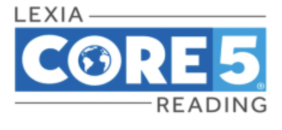
Resources that are aligned with the online program students use during the school day.
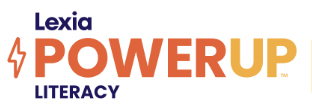
Lexia Power Up Read At Home Newsletter
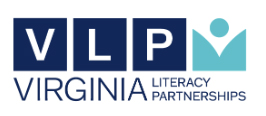
Virginia Literacy Partnerships
Great information and resources that are tied to all components of literacy
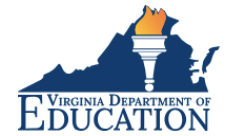
Virginia Department of Education
Resources that are aligned with the standards set by the state for daily instruction
Informative presentations to support literacy and learning at home
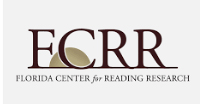
Florida Center for Reading Research
Resources to help work on reading skills for all levels at home.
There are also other helpful sites that are linked for easy access.